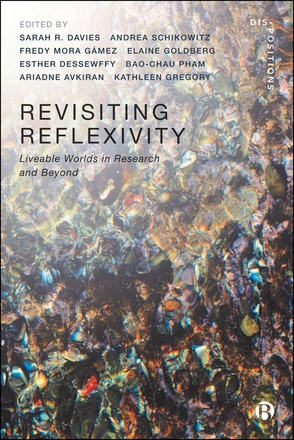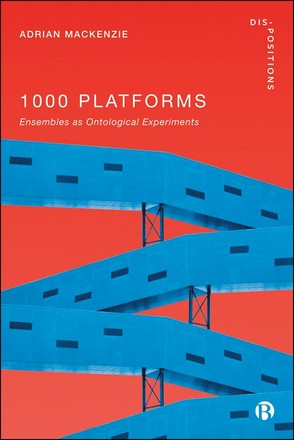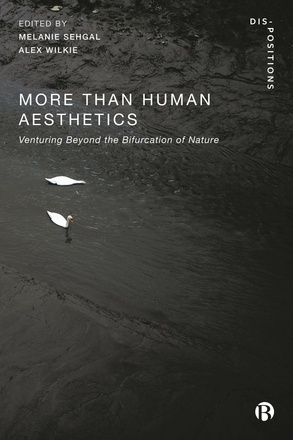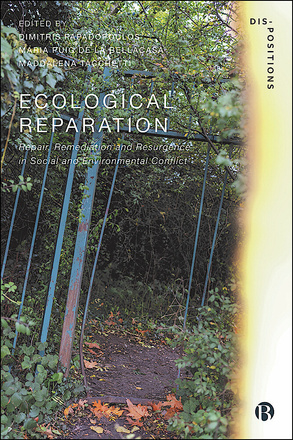Dis-positions: Troubling Methods and Theory in STS
Series editors: Mike Michael, University of Exeter and Alex Wilkie, Goldsmiths, University of London
Emerging through the intersections of sociology, anthropology, history and philosophy, the field of science and technology studies (STS) is undergoing pivotal shifts in how it imagines and engages with ‘the social’ and the question of ‘societies’.
Traditionally, authors have asked questions about the nature of science, technology and knowledge production and how they shape, and are shaped by, social processes. However, the field is becoming highly diversified, having been shaped by empirical, theoretical and methodological developments, such as climate change, computational technologies and posthumanism.
Turning the mirror on STS, Dis-positions is a pioneering new book series that explores these changes in the discipline. It occupies a unique position in the field as a platform for adventurous projects that redraw the disciplinary boundaries of STS.
Across the series, innovative conceptual frameworks are extended, novel fields of inquiry are identified and elaborated, and inventive methodological practices are fostered and illustrated.
Authors are encouraged to address live debates at theoretical, methodological and empirical levels, drawing on and interrogating developments in other academic fields such as geography, philosophy and design. In other words, the series welcomes the new “dis-positions” entering into, disturbing and repatterning the field of STS.
The series provides a consolidated, rigorous and proactive space through which creative and critical new perspectives in STS and beyond can find a voice.
The series will include:
- New modes of STS: posthuman, post-colonial, affective and aesthetic.
- Disciplinary intersections: interdisciplinary, experimental, practice-oriented.
- Methodological inventions: speculative, engaged, entangled, sociomaterial.
- Empirical novelty: emergent technoscientific innovations, reformulations of the ordinary.
- Theoretical developments: speculative, process and pluralistic thought; novel extensions of assemblage and practice theories; the turn to affect; post-performativity, reflexivity and interventions.
Prospective authors are invited to submit proposals for books of between 60,000 and 100,000 words in length.
If you would like to discuss submitting a proposal, please email m.michael@exeter.ac.uk or a.wilkie@gold.ac.uk.
International Advisory Board
Itty Abraham, National University of Singapore
Ben Anderson, Durham University, UK
Casper Bruun-Jensen, Kyoto University, Japan
Nerea Calvillo, University of Warwick, UK
Tomás Sánchez Criado, Humboldt-University of Berlin, Germany
Didier Debaise, Free University of Brussels, Belgium
Marisol de la Cadena, University of California, Davis, US
Carl DiSalvo, Georgia Tech, US
Miquel Domènech, Autonomous University of Barcelona, Spain
Ignacio Farías, Humboldt-University of Berlin, Germany
Michael Guggenheim, Goldsmiths, University of London, UK
Michael Halewood, University of Essex, UK
Gay Hawkins, Western Sydney University, Australia
Christopher M. Kelty, University of California, Los Angeles, US
Daniel López Gómez, Open University of Catalonia, Spain
Celia Lury, University of Warwick, UK
Patrice Maniglier, Université Paris Nanterre, France
Noortje Marres, University of Warwick, UK
Amade M’charek, University of Amsterdam, Netherlands
Atsuro Morita, Osaka University, Japan
Fabian Muniesa, Paris Mines School, France
Dimitris Papadopoulos, University of Nottingham, UK
Kavita Philip, University of British Columbia, Canada
Maria Puig de la Bellacasa, University of Warwick, UK
Kane Race, University of Sydney, Australia
Israel Rodríguez Giralt, Open University of Catalonia, Spain
Martin Savransky, Goldsmiths, University of London, UK
Melanie Sehgal, University of Wuppertal, Germany
Manuel Tironi, Pontifical Catholic University of Chile, Chile
Martin Tironi, Pontifical Catholic University of Chile, Chile











